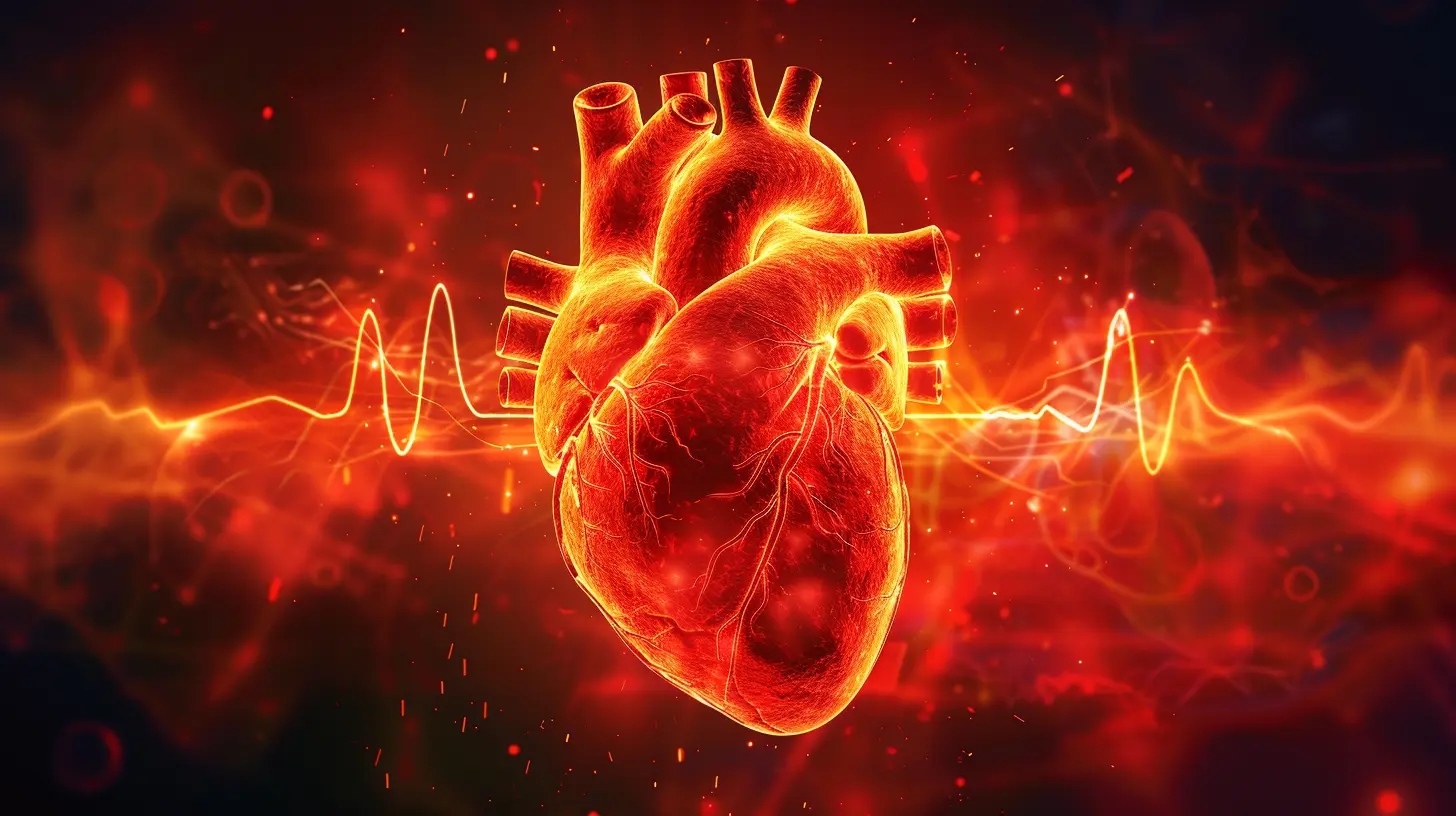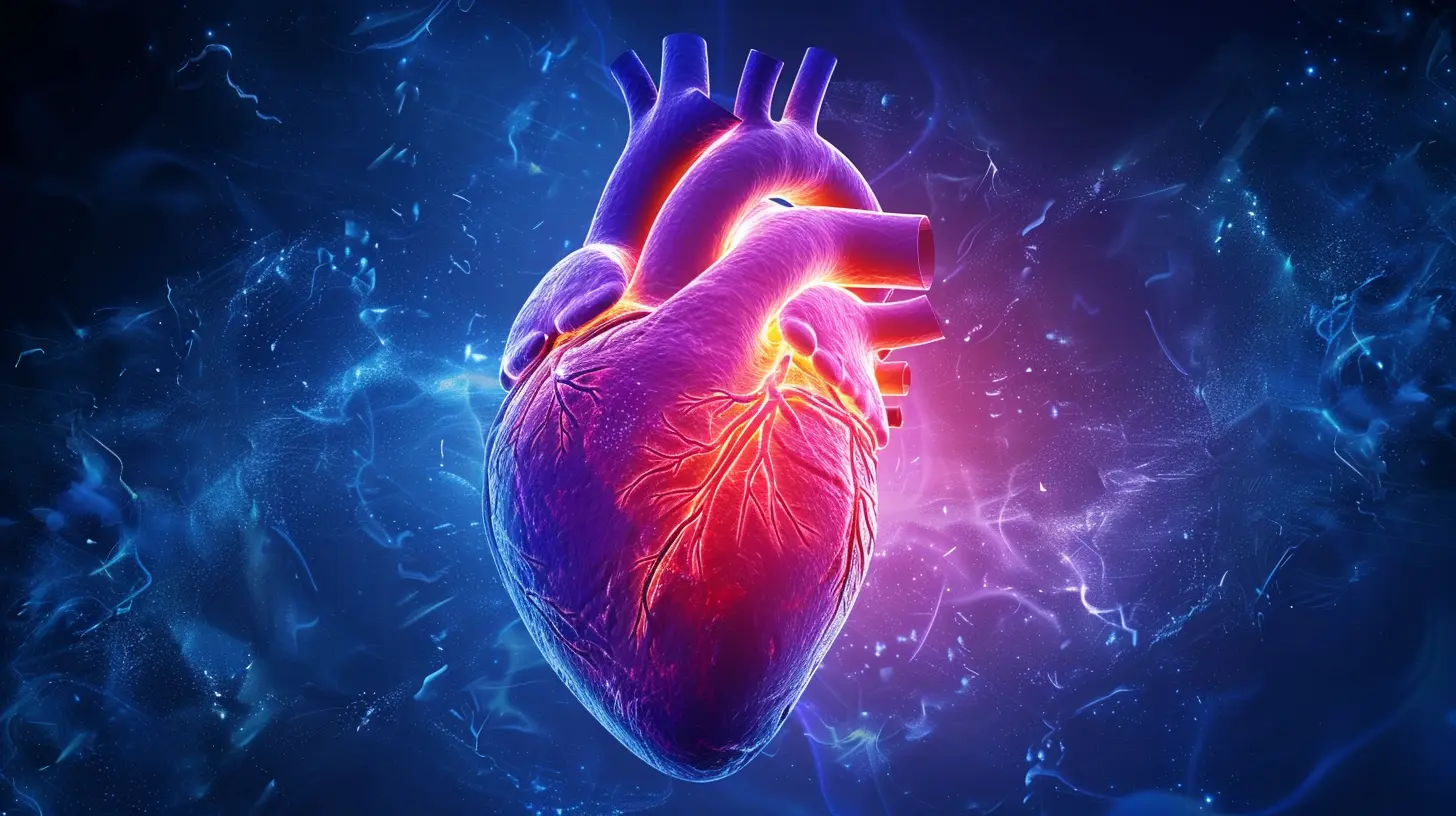Warning Signs of Heart Disease You Shouldn’t Ignore
9 November 2025
Heart disease is a master of disguise.
It doesn’t always come in with a bang. Sometimes, it's a whisper — a heavy breath, an odd ache, or a sudden sweat that doesn’t make sense. And here’s the spooky part – it’s the silent killer for a reason. Too many people ignore the early signs, writing them off as fatigue, age, or just “one of those things.”
But your body? It’s smarter than you think. It talks to you.
And today, we’re going to teach you how to listen.
If there's one article you actually want to read slowly today, this might just be the one. Because the signs of heart disease aren’t always what you’d expect — and some of them are downright sneaky.
Why You Shouldn't Shrug Off The Signs
Let’s kick things off on a blunt note: Heart disease is the leading cause of death globally. Millions die from it every year — and many had no idea they were in danger.It’s not always about dramatic chest pain and collapsing in a public place (though that can happen too). Often, the signs creep in quietly. Think of it like a leaky pipe behind the wall — silent, but slowly doing damage until one day the entire wall crumbles.
That’s why knowing these warning signs could be the difference between life and... well, not life.
1. That Nagging Chest Discomfort
Okay, let’s talk about the classic one first. Chest pain or discomfort, also called angina, is the most common red flag.But here’s the kicker — it doesn't always feel like pain.
Maybe it's tightness. Maybe it's pressure — like someone's sitting on your chest. Or maybe it’s a dull ache that won’t go away.
Key things to watch out for:
- It might happen during physical activity.
- It could occur when you're emotionally stressed.
- It often subsides with rest.
If you ever feel something weird or painful happening in your chest that lasts more than a few minutes or goes away and comes back, don’t play tough. Get it checked. Seriously.
2. Shortness of Breath – When Climbing Stairs Feels Like Everest
Everyone gets winded now and then, right? But if you find yourself gasping after mild activity — like walking to the mailbox or climbing a few steps — alarm bells should go off.Difficulty breathing, especially if it's sudden or unexplained, could signal that your heart isn't pumping efficiently. The lungs and the heart are a team. If one struggles, the other feels it.
It might not scream “emergency," but it’s definitely whispering “pay attention.”
3. Unexplained Fatigue – More Than Just Being Tired
Ever feel like your tank is on empty no matter how much you rest?Sure, life is exhausting. But if you’re constantly bone-tired for no reason, and things that used to be easy now feel like a big deal, your heart could be the culprit.
This kind of fatigue shows up especially in women — and it often flies under the radar. Not sleeping well? Maybe. Stressed? Could be. But if this exhaustion is new, persistent, or just feels off, don’t ignore it.
4. Sweating – At The Wrong Times
We sweat when we work out, when it’s hot, or when we’re nervous. But sweating out of the blue, especially when you’re just sitting and relaxing?That can be a warning sign.
Cold, clammy sweat is way more than a nuisance. It’s often one of the early symptoms for a heart attack, especially if it happens alongside nausea, pain, or shortness of breath.
Heads up: Don't chalk it up to menopause, spicy food, or the weather without making sure your heart's okay.
5. Pain in the Arm, Neck, Back, or Jaw
You’d think pain from your heart would stay… in your heart, right?Wrong.
Heart pain can radiate. It’s like a trickster — sometimes the discomfort shows up between your shoulder blades, or in your left arm, or even in your jaw. You might not even feel chest pain at all.
Women, especially, report back or jaw pain during a heart attack.
It’s unpredictable, which makes it dangerous. If something feels strange in these areas — especially if it’s sudden or paired with other symptoms — don’t wait.
6. An Irregular Heartbeat – The Fluttery Feeling
Ever feel your heart skip a beat? Literally?Sometimes, it's harmless — excitement, too much coffee, no big deal. But if your heart is fluttering, racing, or feeling like it’s doing gymnastics for no reason — that’s a huge red flag.
Atrial fibrillation (AFib) is a common type of irregular heartbeat that can lead to blood clots, stroke, and other heart-related complications.
Listen to your heart (literally). If it’s doing something weird, talk to someone.
7. Swelling in Your Legs, Ankles, or Feet
When the heart isn’t pumping blood properly, fluid can build up in the body, and it almost always settles in the lower extremities first.Ever notice your socks digging in more than usual? Ankles looking puffier? Shoes feeling tight?
This could be a warning. It's called edema, and while it isn’t always heart-related, it often is when it’s paired with other symptoms.
8. Nausea or Indigestion – The Great Deceiver
Heart disease is sneaky. It can mimic other conditions — especially stomach problems.People have ended up in the ER thinking they had bad indigestion or food poisoning, only to learn they were having a heart attack.
If you’re feeling nauseated, bloated, or have a weird burning sensation — and there’s no obvious cause — your heart could be the hidden suspect.
Particularly if you’re at high risk (smoker, overweight, diabetic, etc.), don’t brush it off.
9. Persistent Cough or Wheezing
This one surprises most people.A cough that doesn’t go away could be more than allergies or a cold. If your heart can’t keep up with its workload, blood can back up into the lungs, causing you to cough or wheeze.
It might even produce pink or bloody mucus.
Sounds dramatic — and it is. This isn’t something to wait out.
10. Lightheadedness or Dizziness – A Spinning Warning
You stand up and the room tilts. Or maybe you suddenly feel like you’re going to pass out.Cue the slow, eerie music.
That dizzy, faint feeling might come from your heart not delivering enough blood to your brain. It could be due to narrowed arteries or an irregular heartbeat.
In either case, it’s nothing to mess around with. Especially if you’re driving, lifting, or operating heavy machinery.
What Increases Your Risk?
Knowing the warning signs is vital, but understanding why they happen can help you stay on guard.Here are some major culprits:
- High blood pressure – The silent stressor.
- High cholesterol – Clogs your pipes.
- Smoking – Big no-no for heart health.
- Diabetes – Takes a toll on your blood vessels.
- Sedentary lifestyle – Move it or lose it.
- Poor diet – You are what you eat.
- Obesity – A heavy burden on your heart.
- Stress – Yes, it really does affect your heart.
Genetic factors also play a role, so if you have family members with heart disease, be extra cautious. Your DNA might be carrying some secrets worth uncovering.
When To See A Doctor
Let’s be clear: If you’re experiencing any combination of the symptoms above—especially chest discomfort, shortness of breath, or sudden weakness—don’t wait.Call your doctor. Go to the emergency room. Do what you need to do.
Too many people second-guess themselves with fatal consequences. Better to be wrong and embarrassed than right and six feet under.
What You Can Do Starting Today
Feeling concerned? Good. That means you’re paying attention. But don’t panic — take action.Here’s how to start protecting your ticker:
- Eat heart-healthy: Think veggies, fruits, whole grains, lean proteins.
- Exercise regularly: Even 30 minutes a day can work wonders.
- Ditch smoking: It’s literally killing your heart.
- Manage stress: Yoga, walking, deep breathing — pick your poison.
- Get regular checkups: Keep tabs on blood pressure, cholesterol, and glucose.
- Watch your weight: Extra pounds equal extra risk.
And most importantly? Listen to your body. Seriously, it never lies.
Final Thoughts: Don’t Wait for a Wake-Up Call
Heart disease doesn’t usually announce its arrival with a grand parade.Often, it dances around the edges of your life, hinting with symptoms so subtle you barely notice. One ache here, one strange cough there — nothing that screams “emergency” until it’s suddenly too late.
But you’re smarter than that.
Now you know the signs. And now? You have a choice. Ignore them… or respect them.
Your heart’s been working hard for you since day one. Isn’t it time you returned the favor?
all images in this post were generated using AI tools
Category:
Heart HealthAuthor:

Arthur McKeever
Discussion
rate this article
1 comments
Grayson McKittrick
It's crucial to listen to your body. Recognizing these warning signs can be life-saving. Don't hesitate to seek help if you notice any symptoms.
November 18, 2025 at 3:47 PM

Arthur McKeever
Absolutely! Listening to your body is vital—early detection and intervention can make all the difference in heart health.


